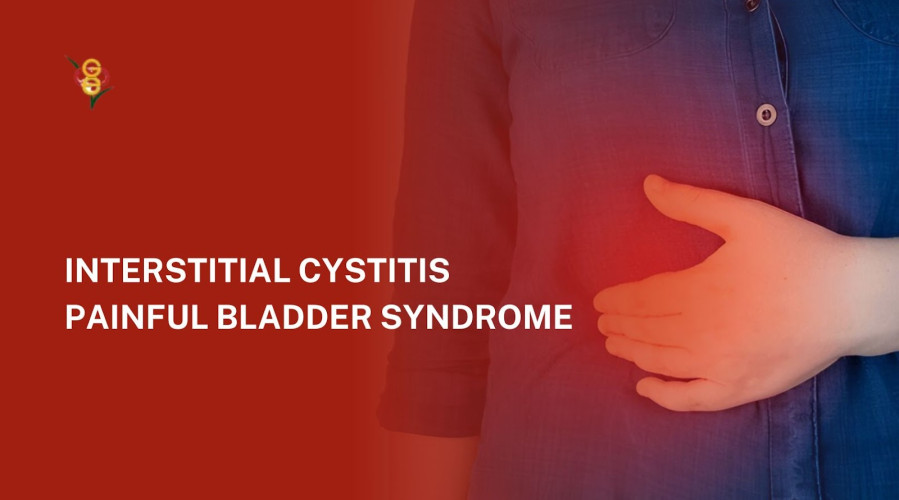Learn effective solutions for digestive problems with expert tips to improve gut health, reduce discomfort, and maintain a healthy digestive system.
Interstitial Cystitis: Understanding Painful Bladder Syndrome

What Is Interstitial Cystitis?
Interstitial cystitis (IC), also referred to as painful bladder syndrome, is a chronic condition producing discomfort or ache in the bladder and pelvic area. It can guide frequent urges to urinate, even when the bladder is not entirely full. The manifestations fluctuate from person to person, and they can extend from gentle irritation to severe agony that influences daily living.
Symptoms of Interstitial Cystitis
The indications of painful bladder syndrome can be comparable to those of a urinary tract infection (UTI), yet IC is not induced by bacteria. Some regular manifestations comprise:
- Persistent pain in the bladder or lower abdomen
- A frequent need to urinate (sometimes more than 40 times a day)
- A strong, sudden urge to urinate
- Discomfort that worsens as the bladder fills up
- Relief after urination, but the pain returns shortly after
These signs can come and depart, with some people enduring exacerbations where the anguish becomes more intense for a time period.
Causes and Risk Factors
The precise cause of painful bladder syndrome is not entirely understood, but several factors may add to the condition, such as a sensitive bladder lining.
- Damage to the bladder lining – If the inner coating is frail, urine can irritate the walls of the bladder, resulting in suffering and inflammation.
- Nerve problems – Some experts believe that nerve signals between the bladder and brain might be transmitting mistaken communications, making the bladder feel full even when it is not.
- Immune system issues – Some cases of IC may be linked to autoimmune conditions where the body mistakenly assaults the bladder.
- Genetics – IC may run in families, meaning some people could be more likely to develop it.
- Other health conditions – People with conditions like irritable bowel syndrome (IBS), fibromyalgia, or allergies may have a higher risk of IC.
How Is Interstitial Cystitis Diagnosed?
Diagnosing IC can be difficult because its symptoms are similar to other bladder problems. A doctor may conduct the following tests:
- Urinalysis – To check for infections or blood in the urine.
- Bladder diary – You may be asked to record how often you urinate and the amount of urine each time.
- Cystoscopy – A small camera is inserted into the bladder to look for abnormalities.
- Bladder biopsy – A small tissue sample may be taken for further testing.
Treatment Options for Painful Bladder Syndrome
While there is no single cure for IC, treatments focus on reducing symptoms and improving quality of life. Some common treatments include:
1. Lifestyle Changes
- Drinking more water and avoiding irritants like caffeine, alcohol, and spicy foods.
- Managing stress, as anxiety can worsen symptoms.
- Doing bladder training exercises to gradually increase the time between bathroom visits.
2. Medications
- Pain relievers – Over-the-counter or prescription painkillers may help manage discomfort.
- Bladder relaxants – Some medications help calm the bladder muscles to reduce urgency.
- Antihistamines – These can reduce inflammation and bladder sensitivity.
3. Bladder Instillations
This involves placing a liquid solution directly into the bladder through a catheter. The solution helps to coat the bladder lining and reduce irritation.
4. Physical Therapy
For some people, pelvic floor therapy can help relax tight muscles and relieve pressure on the bladder.
5. Surgery (In Severe Cases)
If other treatments do not work, surgery may be recommended. However, this is usually only considered when symptoms are extremely severe.
Living with Interstitial Cystitis
Managing painful bladder syndrome requires patience and a personalized approach. Since symptoms vary from person to person, finding the right combination of treatments may take time. Maintaining a bladder-friendly diet, reducing stress, and following a doctor’s advice can help improve daily life.
If you are experiencing symptoms of painful bladder syndrome, it’s important to seek medical advice to get the right diagnosis and treatment. At GEM Hospital, our experts provide advanced care for bladder-related conditions. Don’t let bladder pain affect your quality of life—Book your appointment today and take the first step toward relief!
Blogs & Article
Explore current research trends in digestive health, including new treatments, advanced diagnostics, and innovations improving gut health and patient care.
Discover common digestive health myths and the real facts. Learn simple tips to improve gut health and maintain better digestion for a healthier life.


